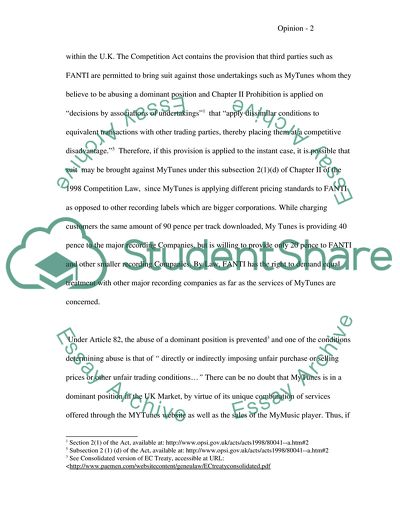Cite this document
(FANTI against MyTunes Case Essay Example | Topics and Well Written Essays - 2250 words, n.d.)
FANTI against MyTunes Case Essay Example | Topics and Well Written Essays - 2250 words. Retrieved from https://studentshare.org/law/1702808-european-competition-law-opinion-writing-bar-vocational-course
FANTI against MyTunes Case Essay Example | Topics and Well Written Essays - 2250 words. Retrieved from https://studentshare.org/law/1702808-european-competition-law-opinion-writing-bar-vocational-course
(FANTI Against MyTunes Case Essay Example | Topics and Well Written Essays - 2250 Words)
FANTI Against MyTunes Case Essay Example | Topics and Well Written Essays - 2250 Words. https://studentshare.org/law/1702808-european-competition-law-opinion-writing-bar-vocational-course.
FANTI Against MyTunes Case Essay Example | Topics and Well Written Essays - 2250 Words. https://studentshare.org/law/1702808-european-competition-law-opinion-writing-bar-vocational-course.
“FANTI Against MyTunes Case Essay Example | Topics and Well Written Essays - 2250 Words”, n.d. https://studentshare.org/law/1702808-european-competition-law-opinion-writing-bar-vocational-course.


